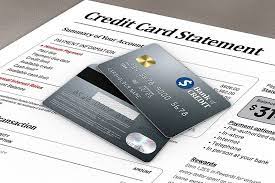Credit Card Convenience Checks Can Be Your Best Friend or Foe
Credit card convenience checks are a great way to pay though it is time consuming and costly for merchants. Check out the ways other businesses are making use of convenience checks and you will realize that the cost and time saving benefits makes them the best legislation for merchants.
The consumer rights groups have been issuing several calls to merchants to give beneficial responses to problems like:
1. Not having a valid picture of all the cards that a customer has
2. Checking the authorization codes (the signature confirmation)
3. They lose funds if they are stolen or compromised
4. The customer’s financial institution does not have a valid signature to complete the transaction
The fees are not high and costs are generally low, usually less than 5% of total dept. Processing of all the payments are done automatically by an electronic data processing equipment and some of the banks are using a network system instead of manual processing. All banks in the US are using this kind of processing equipment.
What can merchants do to take full advantage of alternatives like these:
1. Check out the service fees before committing to it
2. Check with their associations whether they provide this kind of service
3. Check for reasonable penalty fees with fraud protection
4. reassured that the merchants are protected against phone fraud
u Supermarkets
1. Check out the discount and rewards programs of the just outside the consumer brick and mortar establishments. Look out for coupons and discounts when you visit the retailers.
2. Use them to purchase anything that is “on sale” like:
– Food
– Drinks
– Competitive grocery items
– Clothing
– Apparel
– Anything else having a fair price
– Products formulated for special occasions
– Action sports and laser tagged sports equipment
– Playing pool
– Kitchen utensils
What about ATMs?
1. Give enough money to the bank to cover all the charges of the ATMs
2. Look out for those machines out in the shopping center like Saks Fifth Avenue and Macy’s.
3. Depends on the bank policies, if a customer take more than $10. The robbers will wait for them to leave and empty the pit safes
4. Often force customers to leave the ATMs; if they do not or refuse giving a receipt for the money taken by the customers then what is done? It is reported that many credible merchants follow this practice. What isplanedouting AB pages?
In general it is past due. One penny.
One penny or God forbid, a hundred penny or more? Credit Card Convenience
Consider the life of someone who owed a hundred dollars on a credit card.
One thousand dollars? Not likely.
Of course the bank had to collect their money like it or not or they would incur the associated fee under 2011 standards.
In addition the bank send the customers an annual notice of what the balances are, until they pay – there was no grace period.
Then, while they were in the bank, the money was frozen on file, and the bank could not make the transaction form the customer at that point.
Finally when the customer came to take out their money, it was returned to the customer by the bank because the balances of the cards were frozen.
This happened to a select number of people the very same day. Credit Card Convenience 형사 전문 변호사
As for the stolen credit card, the US card community has raised the standard or Gold/Platinum MasterCard in the monitors of accounts.They are commonly used, but the company which issued the card doesn’t report the balance. One report showed an account balance of more than $10,000,000,000.
Often, when a lost or stolen credit card is reported and the cardholder doesn’t report it immediately, the cardholder will be held responsible for charges that show up on the cardholder’s report. The company which issued the lost or stolen card rarely reports the situation, beyond the report to the credit card agency. Till the card is reported, thousands of dollars get stashed into the back.
A customer reports that the bank lost her card
The creditor reports to the credit bureau that the cardholder doesn’t have their processing equipment to complete transactions like ordering checks, or ATMs.
